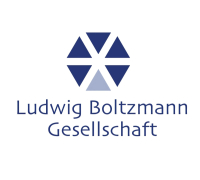Working together with young people on a game promoting risk literacy.
Background
It is difficult for youth workers to see young people’s life through their lenses. Often it is unclear where young people choose to spend their time, nor is there enough knowledge about how young people handle the situations they encounter. However, knowing more about this would help to better assess the risk literacy of young people and make it easier to address potential weaknesses in coping strategies.
Project Content
Vocational students and apprentices aged 15 to 18 who consume legal or illegal substances as part of their leisure activities are unlikely to consider the dangers of their lifestyle and develop suitable risk competence. In this project, we take a fresh look at this issue. By mirroring and incorporating a users’ “real life” in the game "All Tomorrow's Parties", we build a tool that offers additional support in imparting risk competence. "All Tomorrow's Parties" is not intended to replace other measures but should be seen as an add-on for workshops on risk literacy at schools or in youth centres. In the project LEWELJU we do the groundwork for that and map out typical risk behaviour scenarios that will later be integrated into the game. To make such scenarios as realistic as possible, we are developing them together with young people from the target group.
Aims and Methods
In collaboration with young people, we aim to integrate typical risk situations teenagers face into the game “„All Tomorrow’s Parties“. For this purpose, we develop and host two participatory workshops and invite people from the target group (vocational school students and trainees between 15 and 18 years of age). The outcomes and learned lessons are analysed and included into the game. The project's primary area of investigation is the design of the workshops. Initially, the 10 to 20 participants of each workshop are given basic information about the game idea and the project. Following that, the users test the current prototype of the game to gain a better understanding of the game’s concept. After a round of feedback and explanations of the underlying processes, suggestions for locations and scenarios are gathered. In groups of three to five young people the scenarios are then turned into a format appropriate for the game. After the workshops, the young people can send emails with further ideas, check the status of the prototype online or/and give feedback on the game via the website. Participants for the workshops are drawn from Vienna and Lower Austrian vocational schools and youth centres.
Results
The project's outcomes lay the foundation for tailoring the game "All Tomorrow's Parties" to the realities of young people. The game can be then used as an instrument for impact research and youth work. It can be especially useful in the context of risk competence and addiction prevention programs. The young people involved in the project also benefit by experiencing empowerment as a result of their active participation in the production of game scenarios. Their life reality is recognized and they reflect it in a creative process and transmit it to the outside world. The project's outcomes also provide a blueprint for further workshops that can be organized by the ISP or other counselling institutions and serve as a basis for expanding and adapting the game.
You want to know more? Feel free to ask!
Lecturer
Department of Media and Digital Technologies
- Institut für Suchtprävention Wien (ISP)


